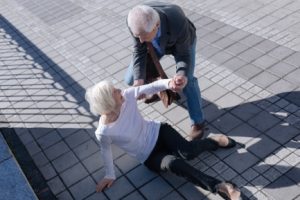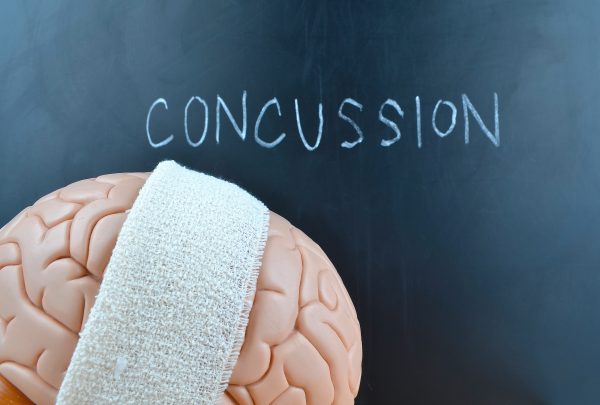COURSE DESCRIPTION:
The course will focus on the assessment and treatment of patients with vertigo and dysequilibrium from unusual vestibular causes. The course is designed for clinicians (PT & OT) with prior vestibular rehabilitation course work and clinical experience. Material covered will include advanced techniques for treating anterior and horizontal canal BPPV, central causes of dizziness (including concussion), identification and treatment of cervicogenic dizziness, chronic subjective dizziness, migraine and other unusual vestibular disorders.
As vestibular disorders occur across the lifespan and with various disorders, this information is applicable to a large patient population with symptoms of dizziness.
This series is one course with 7 short video sessions. Each videos session is 1.5-2 hours.
LEARNING OBJECTIVES:
-
- Diagnose anterior semicircular canal BPPV, and horizontal semicircular canal BPPV, including BPPV affecting the anterior arm of the horizontal semicircular canal.
- Choose the various appropriate treatment techniques for anterior semicircular canal BPPV, and horizontal semicircular canal BPPV, including BPPV affecting the anterior arm of the horizontal semicircular canal.
- Identify the causes of cervicogenic dizziness.
- Interpret a detailed examination of the patient to differentiate between vestibular and cervicogenic causes of dizziness.
- Plan a treatment program for individuals with cervicogenic dizziness, including manual traction techniques for the cervical spine and cervical kinesthetic retraining techniques.
- Identify central causes of dizziness, including CVA, brain injury, and concussion.
- Develop a treatment program based on the nature of the cause of dizziness for a patient with CVA, brain injury, or concussion.
- Modify treatment programs based on the nature of the cause of dizziness for a patient with CVA, brain injury, or concussion.
- Evaluate other causes of dizziness such as chronic subjective dizziness or migraine associated dizziness.
- Develop a treatment program based on the nature of the cause of dizziness for chronic subjective dizziness or migraine associated dizziness.
- Modify a treatment program based on the nature of the cause of dizziness for chronic subjective dizziness or migraine associated dizziness.
CEUs:
If you wish to get continuing education credits, please watch each video session. After you finish Video 7, you will be able to take the post test. After you pass the post-test with a grade of 80% or better, you will be prompted to complete an evaluation and download your CEU Certificate.
__________________________________________________________________________________
SCHEDULE:
Part 1: (2 hours 15 minutes): Clinical Exam: Additional Tools to Incorporate into Your Practice (testing):
- Cover/Uncover and alternating cover tests
- Head thrust tests for the anterior and posterior canals
- Weber and Rinne Tests
- BPPV: Identification and Treatment of Complex Cases
- PC, AC and HC BPPV Treatments and treatment considerations
- Cupulolithiasis v. Canalithiasis
- Guffoni Maneuver, CRM (Canalith Repositioning Maneuver)
- (5 case studies illustrate these diagnoses)
Part 2: (1 hour): Atypical BPPV: Is It Really BPPV? How to Tell and What To Do:
- Demonstration
- Case study
- Complications from BPPV
- Lab: BPPV Treatment
Part 3: (2 hours): Anterior Canal Treatments-Alternatives to the CRM
- Demo: Horizontal Canal Treatments-CRM, Gufoni and Alternative Treatments
Lab
- Central Disorders: Anatomy
- Types of Central Disorders: vascular, head trauma, cerebellar, oculomotor
- Diagnosing and differentiating from peripheral
- Treatment
Part 4: (1 hour 30 minutes): Central Disorders continued:
- Concussion and Vestibular Symptoms: Trauma induced dizziness
- Pathophysiology
- Signs and Symptoms
- Testing
- Other components: PPPD, PTSD
- Treatment Considerations including return to activity guidelines and algorithm
Part 5: (1 hour 20 minutes): Cervicogenic Dizziness-Tests:
- Differential Diagnosis and Treatment
- Anatomy and Pathophysiology
- Clinical Exam techniques
- Treatment Considerations
Part 6: (1 hour 45 minutes): Cervicogenic (continued):
- Demo and lab:
- Alar ligament Test
- Sharp Purser Test
- Cervical proprioception: Assessment and Treatment
- Demo and lab
- Cervical spine manual traction: demo and lab (HEP with towel)
- Proprioception demo and lab
Part 7: (2 hours 20 minutes): Management of Other Causes of Dizziness:
- Vestibular migraine
- Persistent postural perceptual dizziness (PPPD)
- Meniere’s
- Superior Canal Dehiscence
- Clinical problem Solving (cases): Complex cases, diagnosis and treatment
30 Minute Post Test
Richard Clendaniel, PT, PhD, FAPTA is an assistant professor in the Department of Orthopedic Surgery, Doctor of Physical Therapy Division, and in the Department of Head & Neck Surgery and Communication Sciences at the Duke University School of Medicine. He received his MS in Physical Therapy and Ph.D. in Behavioral Neuroscience from the University of Alabama at Birmingham and completed a post-doctoral fellowship in neuro-otology with Susan Herdman, PhD, PT. He previously served as director of the Vestibular Rehabilitation program at Johns Hopkins University School of Medicine, Department of Otolaryngology - Head and Neck Surgery. He is on the medical advisory board for the Vestibular Disorders Association (VEDA) and on the board of directors for the American Balance Society. Dr. Clendaniel maintains an active practice treating patients with vestibular disorders and dizziness. His research is in the assessment of the vestibular system and the plasticity of the vestibular system following injury.
Financial Disclosure: Richard Clendaniel receives an honorarium from Education Resources, Inc. and royalties as a book editor for V̲e̲s̲t̲i̲b̲u̲l̲a̲r̲ ̲R̲e̲h̲a̲b̲i̲l̲i̲t̲a̲t̲i̲o̲n̲, 4th edition, Herdman & Clendaniel.
Non-Financial Disclosure: Richard Clendaniel has no relevant non-financial relationships to disclose.
Once you purchase an online course you will have access to the course materials. If you have purchased this course, please ensure you have logged in to your account in order to take the exam.
Once you purchase an online course, you will have the opportunity to take an exam to test your retention of the material. If you have purchased this course, please ensure you have logged in to your account in order to take the exam. The exam must be completed with a pass rate of 80% or more in order to receive your certificate of attendance.
Continuing Education Hours for disciplines not listed below: 12.5 contact hours (1.25 CEUs). Intermediate level. Therapists License #____________.
Education Resources, Inc. is an AOTA Approved Provider of professional development. Course approval ID# 06477. This Distance Learning-Independent Course is offered at 12.5 contact hours 1.25 CEUs. (Advanced level, OT Service Delivery). AOTA does not endorse specific course content, products, or clinical procedures. This course can be used toward your NBCOT renewal requirements for 12.5 units. Approved Provider for the FL Occupational Therapy Association CE Broker for 15 CE Hours approval #20-783276. Approval #2201-72 by the NJ State Board of Physical Therapy Examiners for 12.5 CEC's. Approved sponsor by the State of IL Department of Financial and Professional Regulation for Physical Therapy for 15 contact hours. Approved provider by the NY State Board of Physical Therapy for 15 contact hours (1.5 CEUs). Education Resources is an approved agency by the PT Board of CA for 12.5 contact hours. This activity is provided by the TX Board of PT Examiners accredited provider #2810017TX for 12.5 CCUs and meets continuing competence requirements for PTs and PTAs licensure renewal in TX. Approved Provider for OK State Board of Medical Licensure & Supervision #BAP202310003. Approved Provider by the NM Board of Physical Therapy for 12.5 CE Hours. 12 hours of this course qualify towards the discipline-specific hours for the 20-hour requirement for NDTA re-certification. They do NOT qualify towards the 8-hour NDTA Instructor requirement for re-certification.
Education Resources Inc., 266 Main St, Medfield MA 02052 508-359-6533






